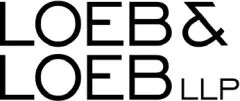A federal court in California has dismissed a class action lawsuit against Taco Bell alleging violations of the Telephone Consumer Protection Act (TCPA), ruling that an advertiser is not vicariously liable under the statute for text message campaigns carried out by agencies on its behalf unless the advertiser controls the manner and means of the campaign. In Thomas v. Taco Bell Corp., plaintiff alleged that Taco Bell was vicariously liable for unauthorized text messages in connection with a text message marketing campaign conducted by the Chicago Area Taco Bell Local Owners Advertising Association (the Association), a non-profit association of local Taco Bell restaurants owners. The U.S. District Court for the Southern District of California granted Taco Bell's motion for summary judgment, finding no vicarious liability.
According to the district court, while the plain language of the TCPA assigns civil liability to the party who personally "makes" a call in violation of the TCPA, the statute is silent on vicarious liability. Under Supreme Court precedent, however, absent a clear expression of intent on the part of Congress to apply another standard, the court must presume that Congress intended to use traditional standards of vicarious liability, including agency and alter ego doctrines. The court rejected plaintiff's argument that the TCPA's provision applying to cellular phones, 47 U.S.C. § 227(b)(1)(A)(iii), employs a broader standard of liability that a party can be held liable if text messages are sent on its "behalf" - i.e., if a party receives benefit from the text message.
In order to hold Taco Bell vicariously liable, the court held that plaintiff was required to demonstrate that either the advertising agency or its subcontractor who "pushed" the messages acted as an agent of Taco Bell - "that Taco Bell controlled or had the right to control them and, more specifically, the manner and means of the text message campaign they conducted." The court concluded that plaintiff had failed to meet her burden because she did not present evidence that Taco Bell directed or supervised the manner and means of the text message campaign conducted by the Association and its two agents, that the company created or developed the text message, or that it played any role in the decision to distribute the message by way of a blast text.
The court rejected plaintiff's "purse string" argument - that Taco Bell's marketing policy requiring approval from Taco Bell for the use of funds to cover the Association's expenses for a local campaign established that Taco Bell had "unfettered control over the Association" - finding that the funds established insufficient evidence of control over the manner and means of the text message. At best, the court found that the evidence established that Taco Bell approved of and authorized the expenditure of funds, but mere approval of funds cannot be equated with control over the manner and means by which the campaign was designed and executed. The court likewise rejected the argument that Taco Bell's participation as a member of the Association, and the participation of its field marketing manager as a member of the Association's board, created an agency relationship. The field marketing manager's votes, both as a representative of Taco Bell in the general Association vote, and as the company-appointed board member in the board vote, constituted minority votes and plaintiff presented no evidence that the Association could not have proceeded with the campaign without those votes.
Viewed in the light most favorable to her, plaintiff's evidence demonstrated Taco Bells' knowledge, approval, and administration of funds related to the marketing, but this evidence "do[es] not amount to controlling the manner and means of the text message campaign." Plaintiff's evidence fell short of establishing that Taco Bell directed or supervised the text message campaign that was carried out by the Association and its two agents. Consequently, Taco Bell could not be held vicariously liable for their actions and summary judgment was granted in Taco Bell's favor.
The content of this article is intended to provide a general guide to the subject matter. Specialist advice should be sought about your specific circumstances.


